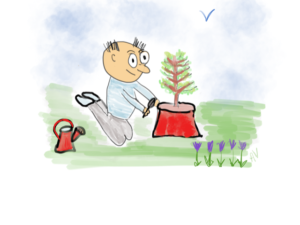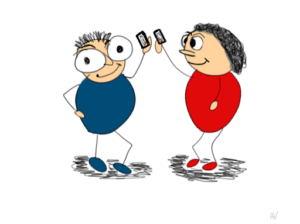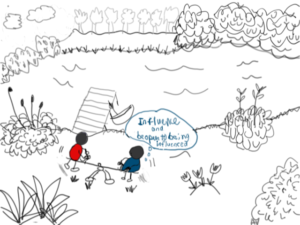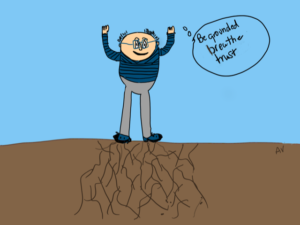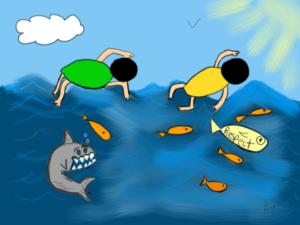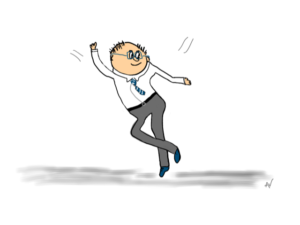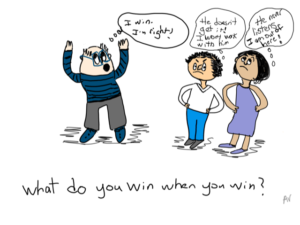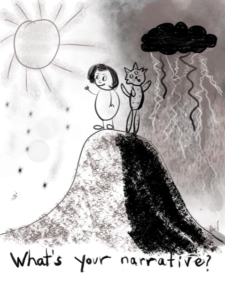
“With awareness, we can make conscious choices, instead of letting our habitual thoughts and patterns run the show.”—Tamara Levitt
I often feel like I have a bird on my shoulder commenting on how things are progressing. Do you also? Most of us have that inner voice speaking to us all day. It is noting what is wrong and what may go wrong and even what is working—sometimes. Often, we think that voice is us. I know that I experience suffering when I repeatedly hear things like, “You are not getting enough done.” Or “Things are not going the way they should.”
While we tend to identify with these voices, they are actually habitual patterns that we have learned though our life experiences and conditioning. I find with executive coaching clients and myself that we can become so used to these voices that we think they are the truth and we don’t see or even look for other perspectives. However, when we step back, we can begin to notice patterns that may not be serving us. It did serve me to tell myself that I am not getting enough done when I was a student with a heavy load. The voice served me and kept me focused. In fact, most of our habitual patterns did serve us at some point and may not be as valuable at this point.
By being kind to ourselves and self-compassionate, we can notice and explore the value of our habitual patterns. We can begin to experiment with new narratives.
Rather than feel like a victim and complain, one client noticed her pattern and began to trust that her teen was learning and growing in a challenging situation and expected him to succeed. This shift in narrative helped her to refrain from constant yelling and did indeed give her son space to thrive.
A client noted his worry about a colleague’s productivity. His instinct was to see what is wrong first. This was a learned habit that has helped him to pay attention to details and require others to do so too. However, his habitual pattern of expecting the worse did not endear him to his colleague.
He worked to change his internal narrative. He practiced noticing when he was being negative and to then look for what the person was doing well. This simple shift of noticing and looking for what he appreciates changed his relationship with his colleague and himself.
Like any habit, it is simple but not easy to make such shifts. However, with intention and practice, my client changed his narrative and changed the way he internally felt. In addition, his relationship with his team benefited since emotions are contagious.
Notice a predominant narrative and reflect on how the habitual pattern may be serving you. If it is not, begin to shift your internal conversation and experiment with a new narrative.
Contact us at any time.


